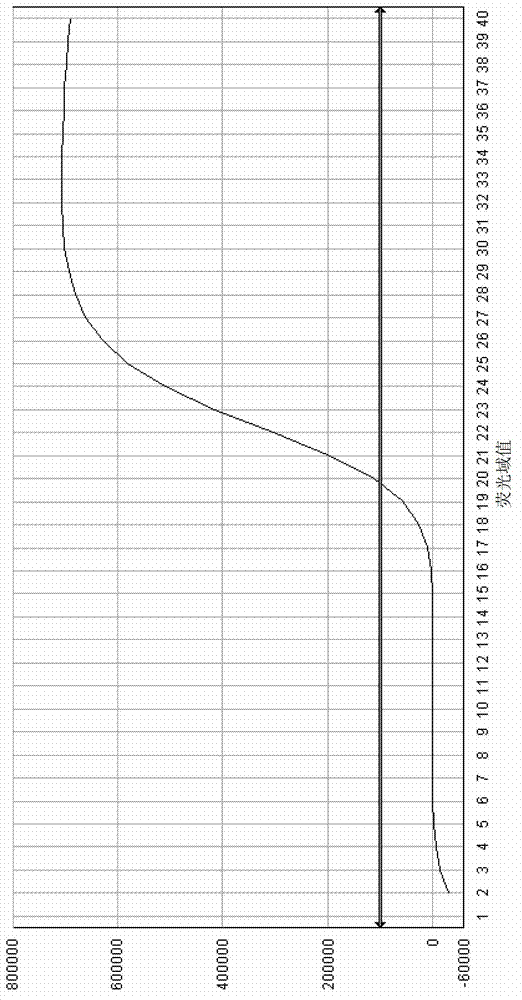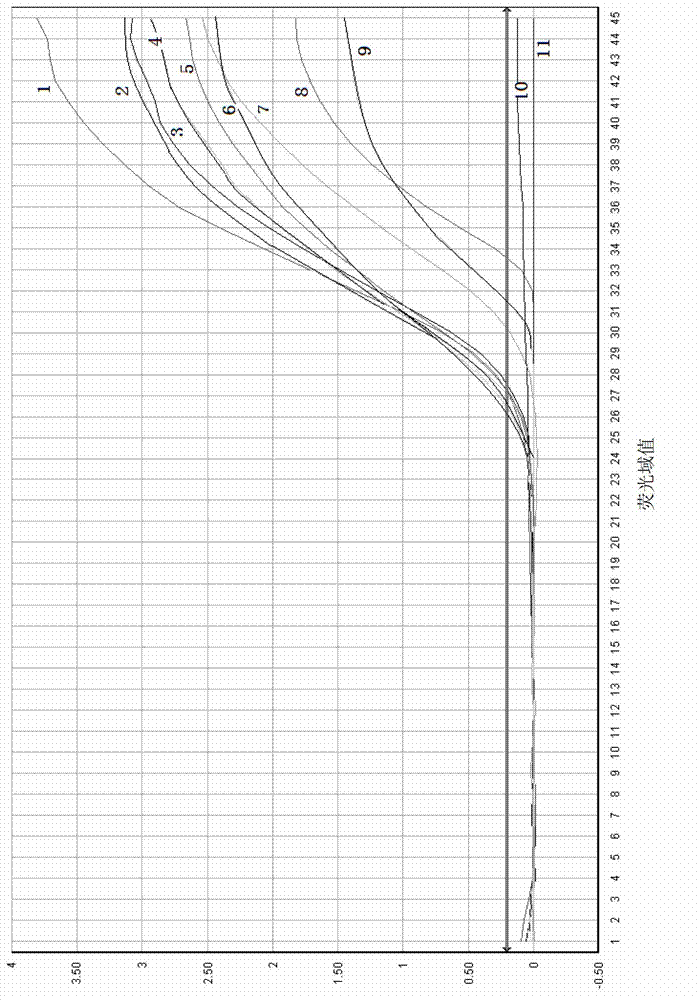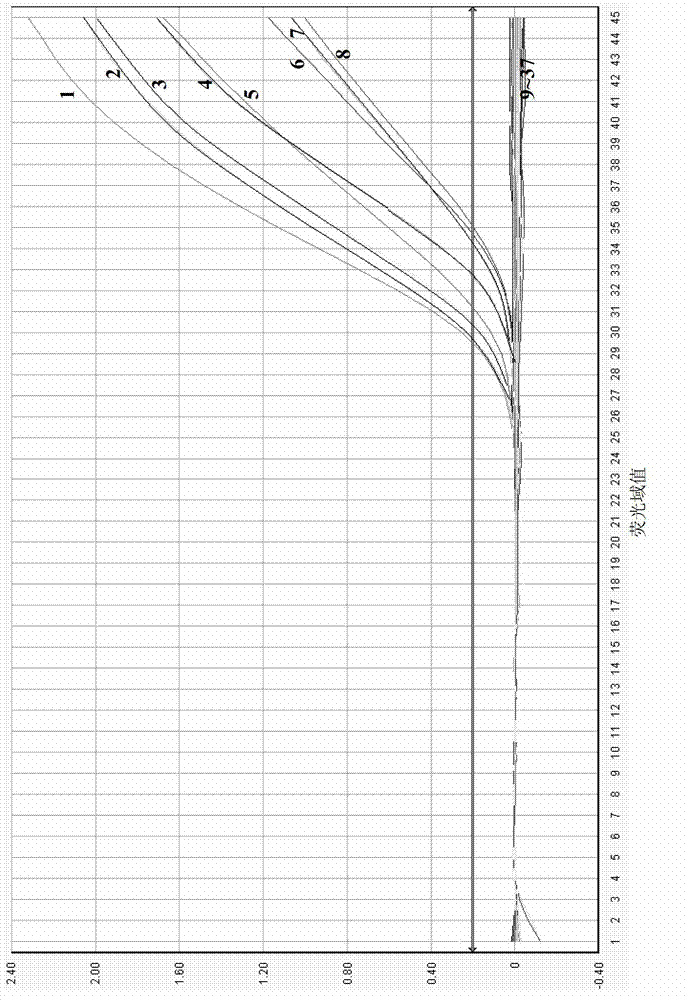Real-time fluorescence PCR (Polymerase Chain Reaction) detection method for components of apricot in food and beverage
A real-time fluorescence and component detection technology, which can be used in fluorescence/phosphorescence, material excitation analysis, biochemical equipment and methods, etc. Prospect, good applicability effect
- Summary
- Abstract
- Description
- Claims
- Application Information
AI Technical Summary
Problems solved by technology
Method used
Image
Examples
Embodiment 1
[0046] (1) Samples to be tested: Positive control, negative control, and blank control were set up during the testing process. The DNA extracted from the apricot component sample was used as a positive control, the DNA extracted from a sample known not to contain apricot components was used as a negative control, and sterilized water was used as a blank control. Two parallel reaction systems were set up for each group.
[0047] (2) Detection method
[0048] The following DNA extraction methods are all routine operations of those skilled in the art, and all reagents and solutions are prepared by conventional means or obtained from commercial means.
[0049] (1) DNA extraction of liquid samples such as fruit juice
[0050] Invert liquid samples such as fruit juice upside down evenly, fully mix the sediment in the lower layer with the liquid in the upper layer, and then weigh the sample. Take about 30mL of liquid into a clean petri dish, vacuum freeze-dry; weigh 0.2g of freeze-...
Embodiment 2
[0083] Embodiment 2 specificity test
[0084] Use this standard method to test samples (see Table 3 for sample details), Liaoning Provincial Institute of Fruit Tree Science, National Fruit Tree Germplasm Xiongyue Li, Apricot Garden, Dalian Academy of Agricultural Sciences Research Institute, and major supermarkets and markets in Dalian, etc. , the samples mainly include: common apricot, Siberian apricot, Liao apricot, purple apricot, Zhidan apricot, Limei apricot, Tibetan apricot, plum, a total of 8 kinds of apricot; plum, peach, cherry, apple, strawberry, pear, apple, banana, crabapple , orange, blueberry, carambola, chestnut, kiwi, pecan, kumquat, peach, fresh lychee, grape, cantaloupe, hawthorn, citrus, mango, cantaloupe, sand date, pineapple, pomelo, bayberry, etc. DNA samples.
[0085] Partial results of apricot component-specific detection are as follows: image 3 and shown in Table 3.
[0086] Table 3 Apricot component detection specificity test results
[0087] ...
Embodiment 3
[0091] Embodiment 3 detection sensitivity and addition test
[0092]The addition test of primary processed products was done with apple as the substrate. After the apricot and apple fruits were chopped and ground, the apricot pulp was added to the apple pulp and mixed evenly to form a 10% added sample. Add to new apple pulp in this ratio until the addition samples containing 200mg / kg, 100mg / kg, 50mg / kg, 20mg / kg and 10mg / kg of apricot pulp are formed respectively. Mix well during addition to ensure even distribution of the sample in the apple flesh.
[0093] According to the result judgment standard described in embodiment 1, the amplification curve is judged; Add test result: as Figure 4 The sensitivity test results of the addition experiment of primary processed products of apricot ingredients show that apple pulp is used as the matrix of primary processed products, and apricot pulp is added respectively to make the added concentrations of 200mg / kg, 100mg / kg, 50mg / kg, 20mg...
PUM
 Login to View More
Login to View More Abstract
Description
Claims
Application Information
 Login to View More
Login to View More - R&D
- Intellectual Property
- Life Sciences
- Materials
- Tech Scout
- Unparalleled Data Quality
- Higher Quality Content
- 60% Fewer Hallucinations
Browse by: Latest US Patents, China's latest patents, Technical Efficacy Thesaurus, Application Domain, Technology Topic, Popular Technical Reports.
© 2025 PatSnap. All rights reserved.Legal|Privacy policy|Modern Slavery Act Transparency Statement|Sitemap|About US| Contact US: help@patsnap.com



